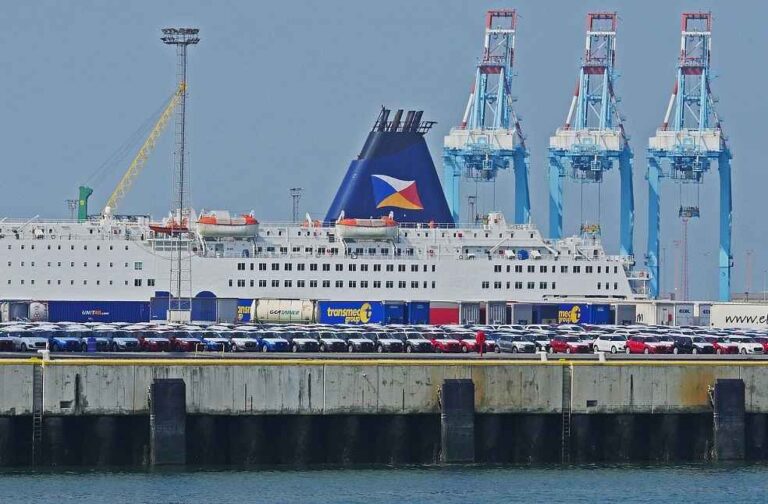A remarkable upswing in Chinese electric vehicle (EV) exports is catalyzing an extraordinary surge for car-carrying ships, positioning China towards establishing the world’s fourth-largest fleet of such vessels by 2028. This development, highlighted by Reuters, marks a pivotal transition in global trade dynamics, especially within the automotive sector. Presently occupying the eighth rank globally with a fleet of 33 car-carrying ships, China’s aggressive order of 47 additional ships—a quarter of the global orders—signals a transformative shift in the industry’s landscape.
This expansive move not only reflects China’s burgeoning influence in the automotive industry but also its strategic maneuvering in the electric vehicle domain. Leading automakers like SAIC Motor, Chery Automobile, and EV powerhouse BYD, together with major shippers such as COSCO and China Merchants, spearhead this initiative, acquiring vessels to facilitate Chinese automakers’ global distribution.

Analysts project a dramatic expansion in China’s car carrier fleet control, escalating from a mere 2.4% to an astounding 8.7% following the delivery of these vessels. This trajectory not only underscores China’s ambition but also its strategic positioning within the global EV export market. Veson Nautical’s analyst, Andrea de Luca, predicts the emergence of new trade routes tailored for Chinese automakers, underscoring a significant industry evolution.
A significant share of these orders benefits Chinese shipyards, capturing 82% of the global demand, reinforcing China’s maritime capabilities while consolidating its dominance in the EV export sphere. Surpassing Japan in 2023, China ascended to the status of the world’s largest auto exporter, with BYD’s exports surpassing 240,000 vehicles, representing about 8% of its global sales. With aspirations to elevate exports to 400,000 units within the year, China’s automotive export momentum remains robust.
The scale-up in production by international automakers like Tesla and Volkswagen within China, exploiting its cost-efficient supply chain, further emphasizes this trend. Despite the flourishing car carrier market, the surge in China’s exports raises critical concerns. The US and the European Union critique the influx of competitively priced Chinese products, suggesting potential unfair trade practices. Such concerns intertwine with rising shipping costs and accusations of China’s strategic export expansion to mitigate domestic industrial overcapacity.

Contrary to these claims, Chinese officials vehemently refute overcapacity allegations, minimizing the impact of state support on growth. This backdrop sets the stage for intensified trade practice discussions and market dynamics debates, with notable figures like US Treasury Secretary Janet Yellen and China’s Minister of Commerce Wang Wentao engaging in dialogue to address these pressing issues.
This evolving narrative not only signifies a transformation within the automotive industry but also heralds a broader realignment of global trade patterns, with China pioneering this transformative journey. As global stakeholders observe, the outcomes of China’s ambitious expansion and the resulting market dynamics shifts promise to redefine international trade and commerce’s future landscape.
EV WORLD | China to Achieve 50% NEVs Sales by 2030, Boosting GDP





